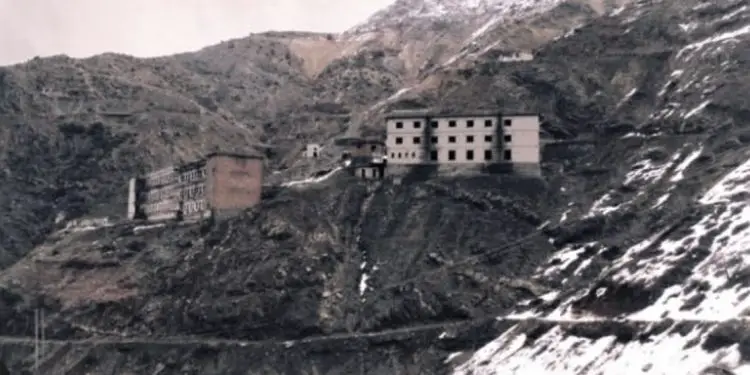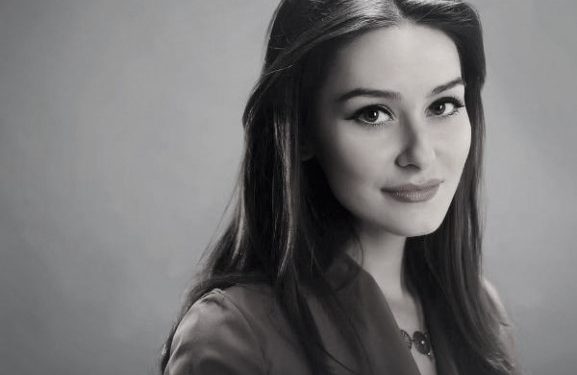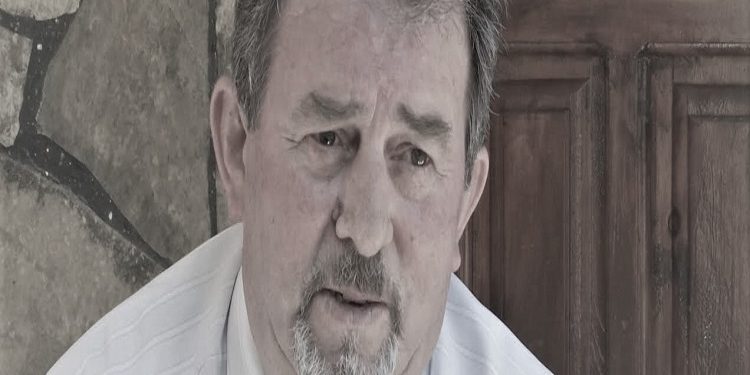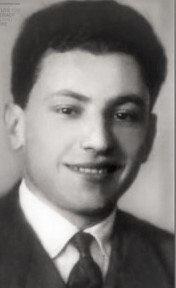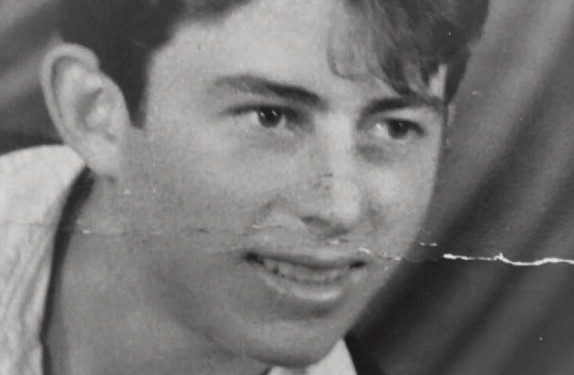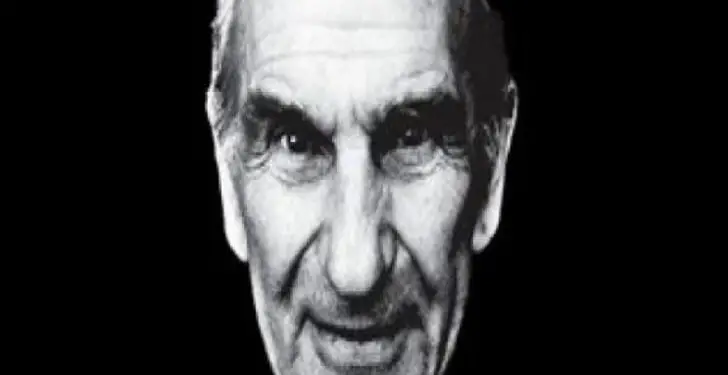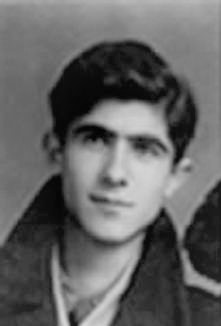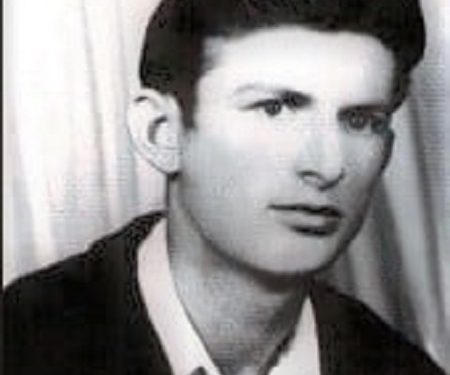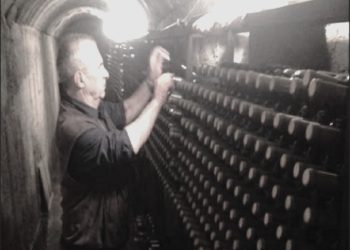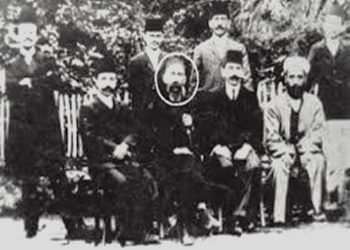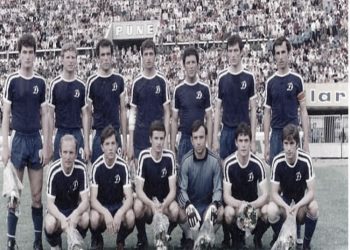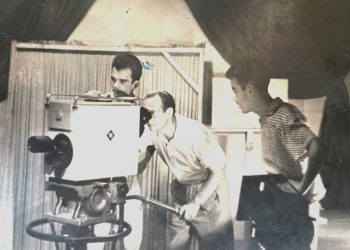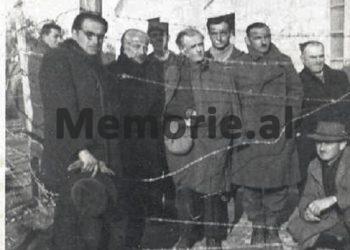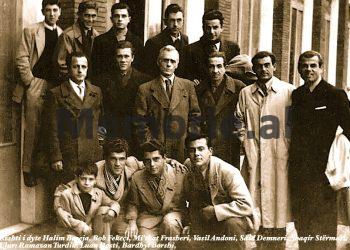By Kristale Ivezaj Rama
Second part
Memorie.al / A detailed description of the largest uprising that ever happened in the communist prisons of Albania, “a confrontation with the state: where on one side crime spoke, on the other side freedom was defended”. Shkëlqim Abazi tells about his five years of sentence, from 16 to 21 years old, that he spent in Reps and in Spaç, where he witnessed the revolt of 1973. The Spaç revolt ended with the shooting of four convicts and the sentencing of dozens of others, some of whom had no role in its outbreak. To break the convicts spiritually, their dearest friend, Tartarin, was also executed. The full testimony of Shkëlqim Abazi, a former political prisoner in 1968, who served his sentence until 1973, in the camps of Repsi and Spaçi.
Continues from last issue
Mr. Abazi, what do you remember from the Spaç revolt?
I remember the Spaçi revolt in detail and my good fortune that I am still brain-normal. The Spaçi revolt was not as spontaneous as they want to present it, there were 30 years of uninterrupted violence, and one day it would explode. The day before the revolt broke out, it was Sunday. A large part of the political prisoners did not want to go to work, because legally Sunday was a holiday, but they never let them rest and there was a rebellion in the morning. To quell the rebellion, the commissar of the camp, Shahin Skura, enters and says: “Come out today, just to carry out the order, and from next Sunday we will not take you out again.”
In a word, this is how the revolt started, from a rebellion on Sunday. But on Monday, in the dungeons, there was one of the Shijak who had been going in and out of the dungeon for 3 months. They called him Pal Zefi. There were two brothers: Gjokë Zefi and Pal Zefi, but the genesis was three months ago: on a very cold February day, and I remember it like today because I was in a brigade with Gjokë Zefi, Pal’s brother. Going out to work, Paul’s brother had put a scarf around our necks because it was too cold. The guard officer was Xhevdet Balla, from Lushnja, a complete criminal: Take off that scarf! “No, I’m cold”, he said.
“Take off your scarf, I tell you.” “Why what is my scarf doing to you? It’s a civilian garment”. “I’m sick”. However, the policeman who was counting at the door goes to him and removes his scarf with difficulty, and the policeman was Prengë Rrapi. I was present. I may have been no more than three meters away. This action revolted everyone, but above all it revolted the brother of this one, who was returning from the third shift and was in the other part because, that’s how the gate was: they went out, they entered. Those of us who went to work, the first shift, and those who returned to the camp, the third shift. It was a gate.
And he says to the policeman: “Don’t touch my brother with your hand.” He was taken from where he was and came and grabbed the policeman’s hand. Not who you are, not who I am, I’ll tell you, with Prengë Rapi. Five or six policemen took him, tied him up, and took him to the dungeon. It was February 20. But prison terms, 30 days, was the maximum. After 30 days, they would take 1 day out, put another 30 days back in, and they did the same with Paul because Paul just went to the dungeon, he met Tomorr Allajbeu, they became friends with Tomorr, they both had the same mind, they even split it: no we will work.
They finally took it out after 30 days, it falls on March 30. “I will wear it to work”! “No”! The next day they put him back in the dungeon. Still another 30 days. It was April 20. On April 20, they did not take him out. This one says: “Take it out that I filled it in.” “No, we know.” He ran away from the dungeon, for a moment, he found the open door that let the others into the bathroom and ran away. He took a corner on the terrace where the counting took place. I have not seen this with my own eyes, my friends who have seen it told me, I was at work. And threatened that if you keep me in the dungeon, I will now jump headfirst from the terrace. Finally, the commissar himself gives him the trust.
The commissar was Matjan. But the communists do not recognize faith. Give him an oath that with my oath you will be put in the dungeon and I will get him out just so that the policeman will be put in his place, and he accepted this oath, but when they put him in the dungeon and did not take him out, then he realized that they are unfaithful, because Paul was a man of faith. She was a nurse by profession. But in the meantime, Gjoka’s brother, after that fight about the scarf, left him for another 10 days and transferred him to Ballsh. Only Paul remained.
Finally, on May 20, he completed his third month in the dungeon and it was up to them to get him out. They still didn’t take it out. Then he protested. No one paid attention to his protest.
On May 21, in the morning, the policeman himself opens the dungeons, takes them to the bathroom and removes the blankets from the prisoners. For a second, he forgot the door was open; he ran out of the dungeon again and entered the camp.
The policeman was taken back: “Go back”! “I’m not coming back, I’ve filled the month”. No you come back, no I don’t come back, and then he informed the guard officer.
The guard officer that day was shot by the operative of the camp, Fejzi Liço from Korça, one of the most dangerous criminals I have ever known. Fejzi Liço calls two more policemen to catch him. However, at the foot of the foundations, he finds an iron rod and occupies a corner where there was a rock and some thorns. He also says: “Whoever comes close will eat the iron rod on his head.” It became a mess. The first shift they had just gotten up and were coming to the bathroom, to the taps, to get food. The movement began. But this one threatened.
At that time they started to accumulate. The head of the technical office, the meanest man who has been in prisons, Medi Noku from Librazhdi, comes out of the office, with two or three of his hounds. They came and 3-4 more policemen entered the gate. And there were about them: 7-8 policemen and three prisoners. They were taken. Medi Noku was the first to go. Catching him by surprise, he fell on his back with a lever, folded Medi Nok. Fejzi Liço was taken away, and Fejzi Liço fell with a crowbar and Fejzi Liço’s hat, I saw this with my own eyes, because I didn’t see with my own eyes, because I was on the second shift, I was asleep, but my friends saw them.
Then, when there was this mess with the lever, there was a big roar, I woke up and went out on the balcony. I ask my two comrades in arms: Fiqiri Muho and Ali Hoxha. “Oh what’s going on”? “Go to sleep, cover your head.” And since they didn’t answer me, I went outside, when I see they were all gathered on the balconies. And what I have seen. I have seen a moment when our dog, “Tartarini”, went to the policemen and grabbed them by the pants and boots. The first started the revolt “Tartarini”, “Tarti”. Pal Zefi came to his aid. At this time, Pavllo Popaj, I heard this with my ears, because I was no more than 10 m. far away, he says: “What are you doing, men? Tarti is embarrassing us. You sit down, take care of yourself.”
And the chaos began, i.e. hitting the cops. I, maybe I am not very accurate, the first one I saw who hit was Muharrem Dyli. He fell to the policeman, and then they all entered. There were over 20-30 people there. The ones I remember were Pavllo Popaj, he started, there was one from Vraka e Shkodra, Muharrem Dyli, Syrja Lame, Paulin Vata, and there were about 20-30 people. This whole fight did not last more than 5 minutes. After 5 minutes, the policemen left. They went out. They left the hats there. Tart ate the hats with his teeth.
The cops didn’t have guns?
It is about those 10 policemen. Even two or three Medi Nok spies. You entered the camp without weapons. Only with a stick, with a hu, because rubber sticks were rare, one in ten could be had, but they had guts filled with sand. Even the irons they had on their belts, they usually did not tie us with irons, but with barbed wire.
How did the events unfold next?
They also ran away. They couldn’t take Paul, or anyone else. After 10 minutes, or half an hour, the commissioner enters with Sulejman Manoku, the director of Implementation-Decisions of the Directorate of Prisons. How it got there at that moment, I don’t know. I doubt it came on purpose to cause these. And they sought to mitigate the situation and mitigated it somewhat. They took the first shift to work. About 50 percent. From the time this started, around 5.00 am, until 2.00 pm, when they took us out of the second shift to work, there were no developments.
They got us to work, but without violence, in a way, with diplomacy, but everyone was talking about it. While I was at work, other developments began. A group headed by the prosecutor of Rrëshen, an investigator of the Internal Branch of Rrëshen, an Operative arrives and they arrest Pal Zefi by trickery. When they took Pal Zefi out, Dervish Bejko was the first to jump in and say: “Why did you arrest our friend, you scoundrel?”.
Then, the others were taken to the infirmary. At that time, Muhamet Kosovrasti was taken out from an entrance behind the infirmary. I myself also accuse Muhamet Kosovrasti, as the prisoner’s doctor, of cooperating with them because he was a witness in all the trials that took place later. So, the lists may have been made there, before the revolt actually started, of who they had in mind to arrest because I saw that they arrested those people who did not participate at all. That is, they picketed the people. Finally, I told them that I was at work.
Around 18.00, they also took Syrja Lamen. Syrja was also arrested and taken to the dungeons, but not to Rrëshen. When they tried to arrest Pavllo Popa, Pavllo said: “I’m coming on my own. There’s no need to handcuff me.” However, when he saw that Syrjana was arrested, he realized that it was their trick, then, before leaving the inner gate, he returned. “I’m not coming,” he said. They went to capture Pavllo. All the prisoners were taken away, then. If you look at it, until these moments, it was a revolt, it was not an uprising. Then the organization began. Again, I did not see these because I was at work.
But what happened for the first time in Albanian prisons, was the moment when they came to us and informed us: Quit your job! And it was around 9:00 p.m., about two hours before the shift ended. I worked as the third, with Mexit Capa from Peshkopia and Feim Lukra from Devolli. I say: “Mejit, what could have happened”? “God knows,” he says, “but something big has happened that they don’t take you out of the mine in vain.” Feimi says: “Brilliant, you have two and a half months, don’t lower your head, and don’t get involved so they punish you again.”
Mejiti too: “Brilliant, listen to Feim. Don’t look at us, because we have a prison car, but you shouldn’t get involved so that they punish you again.” All my friends were telling me the same words. Because I was young at that time, I could even do…! Even though I had done 5 years in prison now. We went outside. We see everyone had come out of the mines. We ask the brigadier. A Muslim Iljazi, from Cologne, says to him: “Ore Rrok, what happened”? “I don’t know anything. By Christ, something big has happened.” Wait for the cops, the cops weren’t coming to pick us up!
Eventually two policemen arrived, the two best policemen the camp had. But they came very scared, without hats at all. When they took us, they took us to the gate. First time in five years that I passed the gate without control. They just let us in. The first moment we entered, I heard a great cheer: “Long lives Albania! Down with communism”! And on the counting terrace, the orators who spoke changed each other. But the orators were my friends who, even though they were my friends, I didn’t know that they were such orators. Even-even, when I saw an orator, I never thought that he would be an orator, but a singer and a lover of music, I got, and dumbbells. I look at Skender Daja.
I was a very good friend. We were the same age. Despite the fact that he had come two or three years after me, we were friends. I knew him as a very clever boy, I knew him for his love of music, but I didn’t know him as an orator. When I heard Skenderi addressing the soldiers: “You are our brothers. We have nothing to do with you! Come with us! We are fighting for our freedoms and yours”, which cost him his life. Luan Burimi. I have heard these with my ears. Eventually I got into the room, dirty as I was. When I look at Tomorr Allajbeu in the room, he has come out of the dungeon.
However, Tomorri continued the uninterrupted dungeons, once a month he came out, one day. “O Tomorr, you were brought out of the dungeons”? “They kicked us out.” “Well thank goodness, they have remembered”, as long as they have taken out our friends. “What gratitude?” he said. “Why, who brought us out of the dungeons? Hulusi Pashollari brought us out of the dungeons.” “What are you talking about? What did he get you out of?” “Come, open the doors.” Indeed, this had happened. A corsair. A small boy with a body, but with a very big heart and a hero. He was truly the hero, who saved 11 lives of people who were in the dungeon.
Hulusi Pashollari cut the fence wires with pliers and entered a channel they had opened to insert the water pipe and went to get his friends out of the dungeons. This was told to me by Tomorr Allajbeu and others who came out of the dungeons. During this time, the soldiers shoot, but a part passed through the gate, a part passed through the channel that Hulusiu entered, and luck escaped them. I said: “Didn’t they shoot you?” “We were shot, but God saved us,” Tomorri tells me. He says to me: “Do you have a container for water here?”. “I have,” I said.
I had a couple of buckets and a wooden bolier, a Kosovar from Rugova, a Ram Tahiri, worked for me, and he used to take 10 liters of water. “Hurry up, take these to your side and fill them up. Because these people cut the water, they are worse than the Turks. They would repeat Sfetigrad”, – and that’s really what happened. Yes, I took gourds and went and filled them. Yes, everyone, this advice: “Open your eyes, you have two months. Don’t mix with us.” Eventually, this was no longer a revolt. Now it had taken on wider proportions. It had reached the stage of an uprising.
During this time a Steering Committee was also set up and there were representatives from all the provinces and all the faiths, but they were among the best people and the most reliable and respectful people, to tell the truth they did not mess up, they didn’t mess up with the revolt, despite the fact that they had put them on the lists to be eliminated and punished, as they were eliminated and punished. I also met some of them who told me: “Open your eyes, don’t get mixed up!”.
What measures did the authorities take?
The cause was long-term violence, mistreatment, etc. etc. that continued for 30 years. The reason was Pal Zefi, but even if it wasn’t Paul, another reason would emerge, the conditions were ripe. At first it was sporadic, but it became very large, as far as I can tell with conviction that of the 700 people who were there, 600 have been members. They did not condemn all, but they could condemn all, even me who have no merit, they could condemn me, but they chose to condemn those they wanted.
And finally, the first day went like this…! In the middle of the night, I hear a great cheer, accompanied by many voices: “Long live the flag”! I had fallen asleep. I got up. I went outside, when I looked they had lit a big fire, the stands were burning, and Fatmir Llagami was keeping the burning fire. I saw with my own eyes that I exchanged conversations with him, while the stands were tearing apart Çaush Çoku and Qemal Demir.
At that time, I saw that Qemali was being treated by two people by hand. “What’s wrong with you, Cemal, they shot you with a bullet”? “No, no, I cut my hand with glass.” I was worried that I had a friend…! When upstairs, on the third floor, cheers again. I look up, I look at the flag. What had happened to the flag now…! Five friends talk to each other: How will we act? One said: “Let’s attack the wires, take the soldiers’ weapons and declare war. The army will come with us.” The other said: “Let’s go to the command gate”, etc. etc.
And Neim Pashai has his own mind and says: “All this is done, if we have the Albanian flag at the head”. Then, a flag was needed. Meringue had to be found. A friend of theirs promises meringue, says: I have the quilt. They go to undress him, but his quilt was really red, but it had white flowers, so it was not a flag, because a larush flag would come out. Then Neimi remembers that on the second floor, where I was also sleeping, one Redxep Lazri, from Dibra, had put a red meringue to protect from the sun. But the cord was too long, they collected it.
But someone from below said: “What is that flag without a symbol”?! The red flag symbolizes only war. He had to become an eagle. Let’s find the painter. They say to Robert Morava, Robert Morava refused, first because he was of weak morals, second he was afraid. Then they told Mersin Vlash. “Then,” said Mersini, “I draw the eagle.” And the moment of drawing the eagle has a comical side to it. Ndrec Çoku took a box of ink. He took it and was mixing it.
His friend says to him: “What are you doing, Ndrec”? “I am cooking halvah for the death of Enver”. And from that day, Ndrec was no longer called Ndrec Çoku, but Ndrec Flamuri, so the eagle was also painted. It was done by Mersin Vlashi. Then a decent stick was needed. Gethe Kadeli made the worthy baton and raised the flag. This was accompanied by so much emotion that people cried. I cried too when I saw the flag waving there.
Meanwhile, it was also accompanied by poetry recitations and speeches. I remember at least three people who recited there, that I was myself. The first was Bedri Çoku. There were two brothers, Çaush Çoku and Bedri Çoku. Bedri Çoku recited the “Hymn of the flag”, but of Noli. After Bedri Çok, Gëzim Medolli stood up and recited Asdren’s “Flag Anthem”. After them, Hodo Sokoli stood up and recited the flag anthem according to Fishta. The three were punished again and all this was accompanied by cheers and slogans.
Then the next day, the flag was removed by the convicts themselves, not by the police. They decided not to let it fall into the hands of the communists and removed it in the middle of the night. In the morning, when I got up, I didn’t see him again. Finally, the next day, a team came from Tirana, Feçor Shehu, he was the deputy minister. He asked for a meeting with a representative office, but everyone knew that the representative office, if you would take them there, would take them to elimination with your own hands, but three people came out and they were: Paulin Vata, Nuri Stepa and Hajri Pashaj.
Paulini from Shkodra, Nuriu from Vlora and Hajri Pashaj from Hekali. It was not a chosen representation, but they came out. Biles, Hajri Pashaj came to the middle when he was confronted with his fellow villager, and I think that this is the most culminating moment of this uprising, the confrontation with the state, when on one side crime was talking, on the other side freedom was being defended. And it was really a confrontation at very, very high levels, on the part of political prisoners.
It became clear to him why this was done, it became clear to him that they are not some rebels as you think, but the whole camp of this opinion, and in the end, it was closed with banality, because the deputy minister, who should speak on behalf of of the law and the state, spoke on behalf of a streetwalker, mentioning even the genitals.
And this clash with Hajri Pashaj and Hajri returned it with the same language. And the fact that Hajriu was arrested first of all the prisoners, the next day, and shows that it was pure revenge. However, a deadline was left until 5:00: “If by 5:00 you have not surrendered, we will act in other ways.” It was 5:00 a.m., even though it was threatened, nothing was done, except that the military presence was increased throughout the territory of Spaç. As we found out later, they had surrounded all of Mirdita. The next day, in the morning…! In the meantime, water and food were cut off, but there were also sick and old people who could not resist.
Then a decision was made: we will surrender, we did our job, and we can’t do more. The next day, at 9:00 a.m., people began to be tied two by two, to take them upstairs, to the main square, to the entrance gate. How did they tie us all up, Feçor Shehu comes, says: “Where is that Hajri Pashaj that captain who threatened me”?! Hajriu also stands up: “Here I am, I have nowhere to be”. They took him, after a couple of minutes they dragged him outside. We only heard a couple of screams, then nothing more. But in the meantime, four people were sitting inside, they didn’t give up.
These four people were: Skender Daja, Dervish Bejko, Jorgo Papa and Dashnor Kazazi. For four people, 400 sambi players entered. But with these four people, there was also our dog, Tarti. These attacked the prisoners, Tarti attacked the policemen. And here Tart’s death sentence was imposed. Then after a few minutes, they took them out with stretchers, to drain their blood. We have seen these with our own eyes. Think now four people with 400. And eventually the decimation began in us, in the square, now. In every 5-6 names, one name was taken aside. They took them, tied them up, and threw them into the cars and the cars started. They took, if I’m not mistaken, more than 90 people.
They took my two friends whom I had attached…! Zef Ashta has been taken as a dummy. Zef Ashta did not participate at all, even even, several times during that day, he called to people: “Sit down, calm down”! They took him instead of Zef Pllumi, because Zef Pllumi, a week ago, was transferred from Spaçi to Ballsh. And when they took him, I heard him with my ears, they said: “Now we will see you, priest, when we get to the place.” But he was not a priest. He was an officer. From there it was understood that he was taken as a dummy, instead of the other one, and the fact that after a month he was brought to trial and not convicted.
Even in the interrogator, they said “priest”. “I’m not a priest, he said, I’m an officer.” “Why aren’t you Zef Pllumi?” “No, he said, I am Zef Ashta, not Zef Plum.” Now all of them, with very few exceptions, within a day there was a special trial with 12 people. Out of 12 people, 4 were sentenced to death, which were executed within 24 hours, and eight were sentenced to 25 years in prison. Among those who were sentenced by a special trial, at least 4-5, who were my friends, did not participate at all: Luan Koka, Sami Dangëllia, and Hodo Sokoli…! These had very positive episodes, except that they were part of the Steering Committee that they chose others, not that they came out on their own.
Others were arrested and brought to trial in groups. It was the group of flag bearers, but the group of flag bearers was not arrested that day, on the 23rd, because they could not find out who had done it, for the reason that it was done at night. However, the spy worked for a week and on Sunday, four days after the revolt, the Operative comes with the prosecutor and asks for the names: so-and-so, Mersin Vlashi, Neim Pashaj, Qemal Demiri, there was one… whom we called “Lenin”, they called him Vladimir, from Gjirokastra. There were five people.
They took them four days ago and they have started their trials, if I am not mistaken with the dates, it will have been June 28 or 29. The sentences were from 13 years to 15. All with one motive: “Terrorism”, in addition to other articles, “agitation-propaganda”. If you see even today, the four martyrs of Spaç have not been found and will not be found because they were considered terrorists under the terrorism articles of that time, this is a tragedy.
Their bones have not been found?
No, no, only those four, but also others who were shot later, Vangjel Lezho and Fadil Kokomani, Xelal Koprêncka, etc…! They have not been found even today. They were executed…! We were given pictures that we saw, they said at Ura e Shpali. Maybe they could have made them there, who saw them! I have written about this for a long time because I met the protagonists in the past and they told me about the investigation, the way they sentenced them and the people who became witnesses.
By the way, I had the courage, in the second volume “Spaçi” in the three chapters of the revolt of Spaçi, I have also mentioned by name the persons who have become witnesses and I have them there. I don’t want to take them to the grave with me because I would feel so guilty if I didn’t. Of course, today they have gone more than 45 years from that time, but this is the truth. Memorie.al




